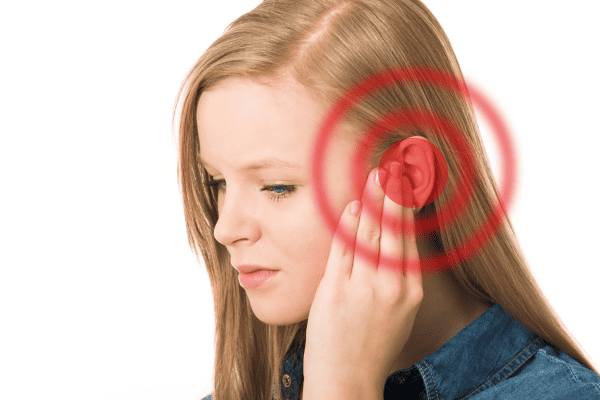Discovering the Importance of Sleep on Your Fitness Goals
Importance of Sleep: Top 10 Benefits for Your Health
Hey there, fitness enthusiasts! Have you ever wondered why no matter how diligently you follow your workout regimen, you sometimes fail to achieve your fitness goals? Well, the answer might lurk in an overlooked health aspect: The importance of sleep.
Today, we’re diving deep into understanding sleep’s crucial role in our fitness journey and overall well-being. However, it may be time to reevaluate your bedtime routine if you struggle with chronic Insomnia or sleepiness during the day. While sleeping pills may seem like a quick fix, they can worsen the problem.
Introduction to the Importance of Sleep
Sleep is an essential part of our daily routine and is crucial for maintaining good health. During bedtime, our body repairs and rejuvenates itself, allowing us to wake up refreshed and energized. Lack of sleep can lead to many problems, including fatigue, irritability, lack of focus, and even more severe health conditions such as obesity, diabetes, and heart disease.
Chronic Insomnia can cause sleepiness during the day, disrupting our circadian rhythm. Therefore, it is essential to prioritize getting enough quality sleep each night.
Getting enough sleep is crucial for maintaining good mental health. When we don’t get enough sleep, our brains can’t function properly, and we may experience symptoms such as irritability, mood swings, and difficulty concentrating.
Lack of sleep can also increase the risk of developing mental health disorders such as depression and anxiety. It’s important to prioritize sleep and establish a consistent bedtime routine to give our brains the rest they need to function at their best. For those with chronic Insomnia, sleeping pills may be necessary to combat sleepiness and improve overall mental health.
Sleep May Prevent Illnesses
Getting enough sleep is not only essential for feeling rested and alert during the day, but it can also help prevent illnesses. Lack of sleep can weaken the immune system, making it harder for the body to fight infections and diseases.
Studies have shown that people who consistently get less than 7 hours of sleep per night are more likely to develop chronic conditions such as diabetes, heart disease, and obesity. Sleep deprivation can also increase the risk of catching a cold or flu. Therefore, prioritizing sleep is crucial for maintaining good health and preventing illnesses.
Hospitals & Long-Term Care Facilities
In addition to the benefits of sleep for individuals, adequate sleep is crucial for hospitals and long-term care facilities. Well-rested patients have a better chance of recovering from illness or surgery and are less likely to experience complications. Inadequate sleep can also lead to mistakes by healthcare providers, which can have severe consequences for patients.
Therefore, hospitals and long-term care facilities must prioritize sleep as part of their overall approach to patient care.
Adverse Health Effects of Lack of Sleep
Lack of sleep can have adverse effects on our health. It can weaken our immune system, making us more susceptible to illnesses like the common cold or flu. It can also increase our risk of developing chronic diseases such as diabetes, heart disease, and obesity.
Lack of sleep can also affect our mental health, increasing stress, anxiety, and depression. It can also impair our cognitive abilities, making concentrating and remembering difficult. Therefore, it is essential to prioritize getting enough sleep each night to maintain good health.
Increased Risk of Heart Disease with Lack of Sleep
In addition to feeling tired and irritable, not getting enough sleep can lead to serious health problems. One of these health problems is an increased risk of heart disease. Studies have shown that people who consistently get less than seven hours of sleep per night are at a higher risk for developing heart disease than those who get more sleep.
Lack of sleep can cause high blood pressure, a significant risk factor for heart disease. Not getting enough sleep can also lead to weight gain, another risk factor for heart disease. Therefore, it is essential to prioritize getting enough sleep to maintain good heart health.
Public Health Promotion Programs
To promote good sleep habits, public health promotion programs can be beneficial. These programs can educate people on the importance of sleep and provide tips for improving sleep quality. They may also offer resources such as sleep trackers or relaxation techniques to help individuals get a better night’s rest. By promoting healthy sleep habits, these programs can improve overall health and well-being in communities. Individuals must prioritize their sleep and seek resources to help them rest better.
College & Health Professionals Education
Getting enough sleep is crucial for both college students and health professionals. Lack of sleep can lead to a decrease in cognitive performance, memory, and attention span. For college students, this can negatively impact their academic performance. Health professionals who do not get enough sleep may make mistakes that can risk their patients’ lives. Both groups must prioritize sleep and establish healthy sleep habits to ensure they function at their best.
Impaired Brain Function with Poor Sleep
Sleep is a crucial aspect of our lives that directly impacts our brain function. It allows our brain to rest and recharge, essential for cognitive performance. When we don’t get enough sleep, our brains become fatigued, and we experience memory lapses, difficulty concentrating, and poor decision-making.
This can harm our daily lives, affecting our productivity and overall well-being. Studies have shown that people who are sleep-deprived perform poorly on cognitive tasks compared to those who are well-rested. Lack of sleep affects the brain’s prefrontal cortex, which is responsible for decision-making and problem-solving. In addition, sleep deprivation can also cause an increase in stress hormones such as cortisol, leading to anxiety and mood swings.
Getting enough sleep each night is essential for optimal brain function. The National Sleep Foundation recommends that adults between 18 and 64 get 7-9 hours of sleep each night. However, it’s not just the quantity of sleep but also the quality.
Establishing a regular sleep schedule and creating a relaxing environment conducive to quality sleep is essential. In conclusion, prioritizing sleep is crucial for our physical and mental health. It allows our brain to rest and recharge, improving cognitive performance and overall well-being. So next time you’re tempted to sacrifice sleep for work or other activities, remember that getting enough rest is essential for being at your best.
NREM (Deeper and Deepest Sleep), NREM (Light Sleep)
Getting enough sleep is crucial for our overall health and well-being. When we sleep, our body goes through different stages of sleep, including NREM (deeper and deepest sleep) and NREM (light sleep). During the deeper stages of sleep, our body repairs and regenerates tissues strengthens our immune system, and consolidates memories.
On the other hand, light sleep is essential for processing information and preparing our body for the deeper stages of sleep. GIt’setting a good balance of both types of sleep is necessary to ensure we wake up feeling refreshed and energized.
The Science of Sleep
Before we jump into how sleep affects fitness, let’s understand what happens when we hit the sack. Sleepiness is a familiar feeling that prompts us to seek bedtime. Sleep isn’t a passive state but a dynamic process where our bodies undergo various essential functions. Our sleep cycle consists of multiple stages, from light to deep sleep and even a dream stage known as REM sleep.
These stages are vital for body functions and processes, including muscle recovery, memory consolidation, and hormonal regulation. Insomnia is a sleep disorder that can affect the quality of our sleep and lead to difficulty falling or staying asleep. It’s essential to study the factors contributing to Insomnia and how they can be managed to ensure a good night’s sleep.
The Role of Sleep in Fitness
Now that we have a basic understanding of the sleep cycle let’s delve into the fascinating connection between sleep and fitness. If you’re experiencing sleepiness during the day or struggling to fall asleep at bedtime due to insomnia, it may negatively impact your fitness routine. A recent study found that those with insomnia tend to have lower physical activity levels than those with enough sleep.
Getting enough sleep is crucial for maintaining a healthy body and mind. Lack of sleep can affect our physical health by weakening our immune system, increasing the risk of obesity, and causing high blood pressure. It can also negatively impact our mental health, leading to mood swings, anxiety, and depression.
In contrast, getting enough quality sleep can improve our overall well-being, increase energy levels, and enhance cognitive function. Therefore, it is important to prioritize sleep as a critical component of our fitness routine. However, struggling with sleepiness or Insomnia can harm our psychology and daily productivity, making it essential to aim for the recommended seven to nine hours of sleep each night.
How Sleep Contributes to Muscle Recovery and Growth
Whether pumping iron in the gym or pounding the pavement with high-intensity interval training, you’re causing tiny muscle tears. During sleep, your body repairs these micro-injuries, promoting muscle growth and recovery. Lack of sleepiness or Insomnia may hinder this process, so hit the bed early to prevent heart disease.
Moreover, sleep plays a crucial role in maintaining a healthy immune system. Lack of sleep and Insomnia can cause sleepiness during the day, weakening your immune system and making you more susceptible to illnesses and infections. On the other hand, getting enough hours of quality sleep every night can boost your immune system and help your body fight diseases. So, to stay healthy and robust, prioritize getting enough quality sleep in bed every night.
The Link Between Sleep and Athletic Performance
Next, let’s talk about the link between sleep and athletic performance. A good night’s sleep is like a performance booster. It enhances concentration, boosts energy levels, and improves coordination and agility. However, hitting the bed early might not be enough if you suffer from sleepiness or insomnia. Research shows that addressing underlying sleep issues is crucial for optimal athletic performance.
How Lack of Sleep Can Impede Fitness Progress
Conversely, lack of sleep and Insomnia can really damper your fitness progress. When you’re struggling with sleepiness and wakefulness, your body works to repair muscles, consolidate memory efficiently, balance hormones, and this can lead to depression which can negatively affect your fitness results over time.
Strategies for Better Sleep
Now, let’s look at some strategies for better sleep. Maintaining a consistent sleep schedule helps regulate your body’s internal clock, promoting better sleep at night. Your environment plays a crucial role too. A sleep-friendly background is quiet, dark, and calm, signaling your body that it’s time to wind down. If you suffer from Insomnia or sleepiness, sticking to a regular bedtime and waking up at the same time daily can help. SIt’spending enough hours in bed is also essential to ensure restful sleep.
Don’t forget about the role of diet in sleep quality, which is crucial for your health. Limit caffeine and alcohol consumption at night, as they can interfere with your sleep cycle and lead to Insomnia. Make sure you get enough hours of sleep to avoid any further complications.
Effects of Sleep Deprivation on Fitness
Consistently cutting corners on sleep is like sabotaging your fitness efforts. Over time, sleep deprivation can lead to decreased performance, slower recovery, and increased risk of injury. The dangers of overtraining and undersleeping are genuine, leading to chronic fatigue that can significantly impede your fitness progress. Insomnia and depression can also affect your health if you don’t sleep enough.
Tips for Athletes and Fitness Enthusiasts
For those involved in high-intensity training, it’s even more crucial to prioritize sleep. Remember, rest is not the opposite of exercise; it’s an integral part. Learn to listen to your body’s signals for rest – if you’re feeling overly tired, it might be a sign that you need to dial back on training and ramp up on sleep. Insomnia can harm your health, so ensure you get enough hours in bed to promote a healthy sleep cycle.
Frequently Asked Questions
1. Can a nap during the day compensate for inadequate sleep at night if you have Insomnia and struggle to get enough hours of rest in bed?
While rest can’t ultimately make up for a whole night’s sleep, it can help to improve mood, alertness, and performance. However, having Insomnia and spending hours tossing and turning in bed can lead to depression. Therefore, it’s still crucial to aim for a consistent sleep schedule for optimal health and fitness results.
2. How much sleep do I need as an athlete to maintain my health and avoid Insomnia? Should I be prioritizing my time in bed for optimal performance?
A. Sleep requirements can vary depending on several factors, including age, type, intensity of training, and individual needs. However, a good rule of thumb for adults, including athletes, is to aim for 7 to 9 hours of sleep per night. People living with Insomnia may find it challenging to achieve the recommended amount of sleep, which can negatively impact their health. EIt’sstablishing a regular bedtime routine and prioritizing sleep as part of your overall education on maintaining good health is essential.
3. Does exercise improve sleep quality?
Regular physical activity can help improve your health and prevent insomnia problems. However, timing is essential. Avoid vigorous workouts close to bedtime as they can interfere with sleep hours and lead to further insomnia issues.
4. How does lack of sleep affect weight management?
Lack of sleep, also known as Insomnia, can disrupt the balance of hormones that regulate appetite, leading to increased hunger and a higher risk of weight gain. Furthermore, it can lead to fatigue, reducing the possibility of physical activity and increasing the risk of health problems.
5. Can I work out if I’m sleep deprived?
A light to moderate workout could help boost your energy levels if you feel slightly tired. However, if you’re experiencing insomnia or sleep problems, your body may not perform optimally, and there’s a higher risk of injuries. Your health must listen to your body and rest if needed, especially when you’re struggling with sleep.
Thanks for sticking around till the end, and here’s to healthier sleep and fitter bodies! Remember, the path to your fitness goals is not just paved with intense workouts but also with restful nights in your bed. If you are struggling with Insomnia, seek education on sleep hygiene to improve your rest. Until next time, as a reminder, prioritize your sleep, as it is just as important as training hard to achieve your fitness title. Sleep well and train hard!
health importance of sleep
Getting enough sleep is crucial for maintaining good health. When we sleep, our bodies can rest and repair themselves. Lack of sleep can weaken our immune system, making us more susceptible to illnesses. It can also affect our mental health, causing mood swings and difficulty concentrating. In addition, not getting enough sleep has also been linked to an increased risk of obesity, diabetes, and heart disease. Therefore, it’s important to prioritize getting enough quality sleep each night for overall health and well-being.
How does alcohol impact sleep?
Alcohol can hurt sleep quality. Although it may help you fall asleep faster, it can disrupt the later stages of sleep and cause you to wake up frequently throughout the night. This can make you feel tired and groggy the next day, even if you slept for eight hours. Additionally, alcohol can increase the likelihood of snoring and sleep apnea, further disrupting your sleep patterns. It’s important to limit alcohol consumption before bed and prioritize getting quality, uninterrupted sleep for optimal health and well-being.
How does what we eat impact our sleep?
The food we eat can significantly affect the quality of our sleep. Eating heavy meals or consuming foods high in sugar or caffeine close to bedtime can make it difficult to fall asleep and stay asleep throughout the night. On the other hand, eating foods rich in tryptophan, an amino acid that helps produce serotonin and melatonin in the brain, can promote better sleep. Foods such as turkey, chicken, nuts, seeds, and dairy products are good sources of tryptophan and can be incorporated into a healthy diet to improve sleep quality.
How important is sleep for our mental health?
Getting enough sleep is crucial for maintaining good mental health. When we don’t get enough sleep, our brains can become foggy, and we may have trouble concentrating or making decisions. Lack of sleep can also lead to mood swings, irritability, and anxiety. In the long term, chronic sleep deprivation has been linked to depression and other mental health disorders. That’s why it’s important to prioritize getting enough quality sleep each night to support our overall well-being.
How important is sleep to the body?
Sleep is essential for our bodies. When we sleep, our bodies can repair and rejuvenate themselves. This means we wake up feeling refreshed and energized, ready to tackle the day ahead. In addition, sleep is essential for our mental health. Without enough sleep, we may experience mood swings, anxiety, and depression. Getting enough sleep can also help us maintain a healthy weight, as lack of sleep can lead to overeating and weight gain. Overall, sleep is crucial for our overall health and well-being.
How important is sleep to the body?
Getting enough sleep is crucial for maintaining a healthy body and mind. When we sleep, our bodies can regenerate cells, which helps to keep fit and function correctly. Lack of sleep can lead to various health problems, including weight gain, high blood pressure, and an increased risk of heart disease. Additionally, getting enough sleep is essential for mental health, as it helps to improve mood and cognitive function. Overall, prioritizing sleep is vital to living a healthy life.
How Much Sleep Do Humans Need?
According to the National Sleep Foundation, adults between 18 and 64 need about 7-9 hours of sleep per night. However, this can vary from person to person based on their individual needs and lifestyle factors. It’s important to prioritize sleep and ensure you get enough rest each night to maintain good health and overall well-being. Not getting enough sleep can lead to various negative consequences, including decreased cognitive function, mood swings, and an increased risk of developing chronic health conditions.
how importance of sleep
Getting enough sleep is crucial for our overall health and well-being. Lack of sleep can lead to various adverse effects, such as decreased cognitive function, mood swings, and even physical health problems. It is recommended that adults aim for 7-9 hours of sleep each night, while children and teenagers require even more. Developing good sleep habits, such as sticking to a regular sleep schedule and creating a relaxing bedtime routine, can help ensure we get the rest we need to function at our best.
List of reasons why sleep is important
Getting enough sleep is crucial for maintaining good health and overall well-being. Lack of sleep can lead to various negative consequences, including decreased cognitive function, impaired memory, and increased risk of accidents. Not getting enough sleep has also been linked to several severe health conditions, such as obesity, diabetes, and heart disease. To stay healthy and perform at our best, it is essential to prioritize getting enough sleep each night. g
Conclusion
In a nutshell, sleep is a cornerstone of fitness and health. So, let’s prioritize sleep, not an afterthought, for achieving our fitness goals. However, insomnia problems can make it challenging to get the recommended hours of sleep in a bed. Education on managing these problems is critical to maintaining good sleep hygiene.
Have you noticed the connection between sleep and your fitness performance? As an individual with Insomnia, I understand the struggle of getting out of bed in the morning to exercise. However, with proper education on the importance of sleep, I have realized that it plays a crucial role in my fitness progress. Don’t underestimate the power of a good night’s rest! Subscribe for more tips and insights on health and fitness from a fellow insomniac with the title of AI language model.
We’re reader-supported. We may earn an affiliate commission when you buy through links on our site.
We’re reader-supported. We may earn an affiliate commission when you buy through links on our site.

Angus Robertson
Hi there! I’m Angus Robertson, a nutritionist and fitness enthusiast. I am passionate about helping people achieve optimal health through balanced nutrition, regular exercise, and mindful living. My blog, “My Fitness Health Journey,” aims to inspire and empower individuals to make positive lifestyle changes for a healthier and happier life.







One Comment